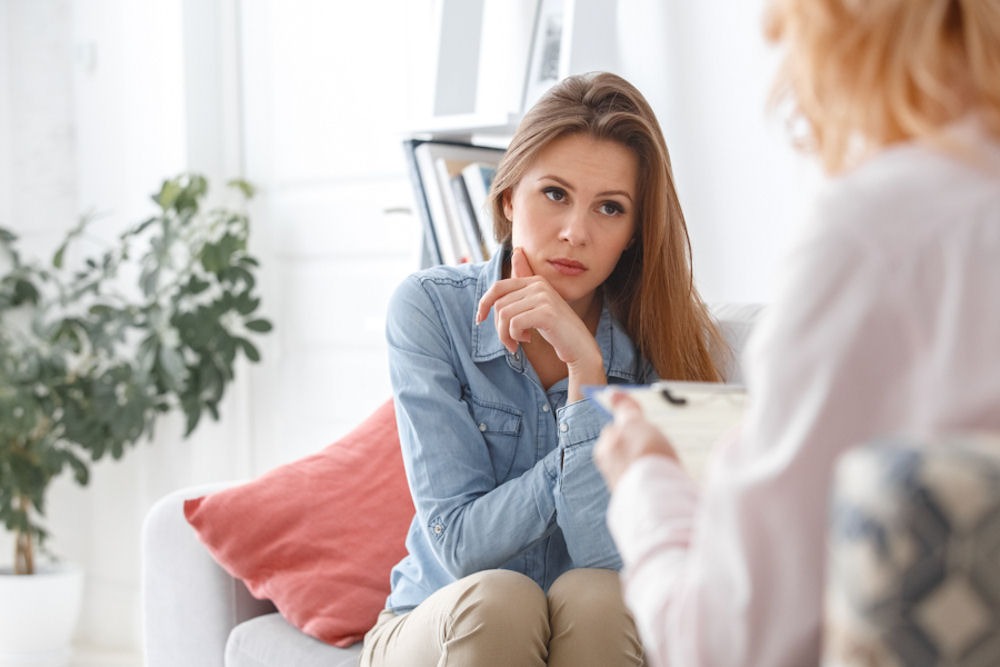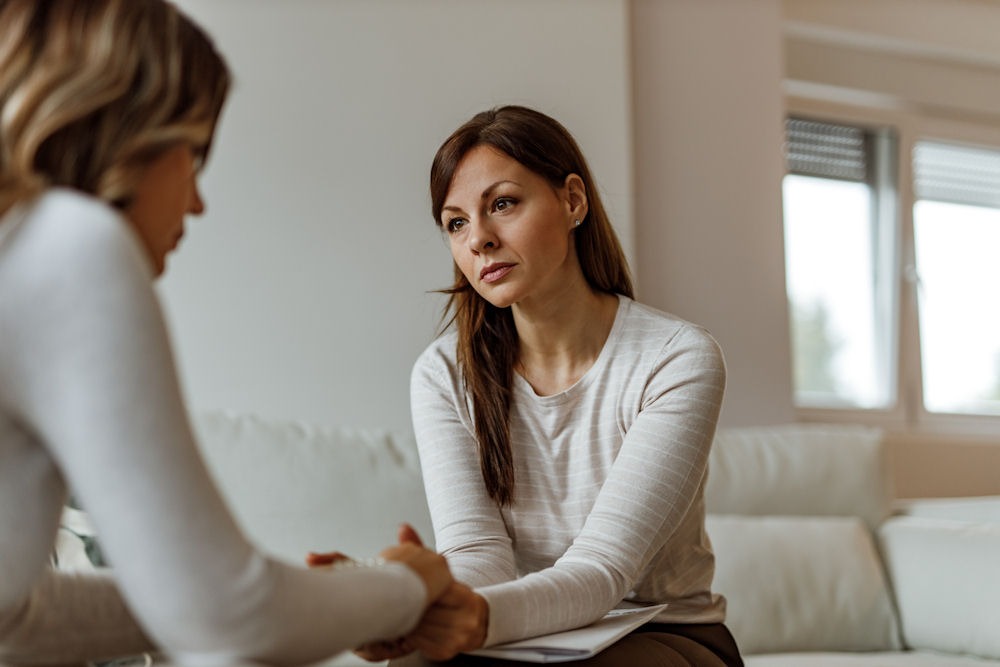Mother’s Day is often portrayed as a time of celebration, brunches, flowers, and sentimental cards. But for many, it’s anything but joyful. For people grappling with grief, estrangement, personal trauma, infertility, or recovery from substance abuse, this seemingly cheerful holiday can bring a heavy emotional toll.
If you’re dreading Mother’s Day or struggling to get through it, know that you’re not alone. More importantly, you are not wrong for feeling this way. Mother’s Day can be triggering for countless reasons, all of which are deeply personal and valid. You may not even fully understand why the holiday feels heavy until you sit with the discomfort it brings. These are just a few of the common reasons Mother’s Day may evoke sadness, resentment, anxiety, or grief:
You’ve Lost Your Mother
For those whose mothers have passed away, Mother’s Day can serve as an aching reminder of that loss. While others are posting cheerful tributes on social media or spending the day with their moms, you may feel like grief is taking center stage in your heart.
Whether your loss was recent or years ago, this day can reignite deep feelings of sadness or longing. You might even feel caught off-guard by how strongly grief hits you, especially if you thought you were “doing better.” Grieving the death of a mother isn’t linear. It ebbs and flows, and Mother’s Day can be one of those times when the tide rushes back in with surprising force.
You’re Struggling with Infertility
If you’ve been trying to conceive or have faced a recent miscarriage, Mother’s Day can be a brutal reminder of what you don’t yet have. This grief is often invisible, and friends and family may not realize the pain you’re carrying. But seeing other women celebrated for being mothers can trigger deep feelings of inadequacy, shame, jealousy, or hopelessness.
All of these feelings are acceptable to feel. It’s okay to avoid events, opt out of social media, or take a break from anything that makes your heart ache on this day.
You Have a Difficult Relationship With Your Mother
Not everyone was raised by a loving, supportive parent. If your relationship with your mom is complicated, estranged, or abusive, Mother’s Day may bring a confusing mix of emotions. You may feel guilt, anger, or grief. You might feel pressure to reconcile or put on a smile for others.
But honoring someone who hurt you isn’t required, no matter what the greeting cards say. Acknowledging your pain is not disrespectful. You’re allowed to create distance, set boundaries, and make choices that prioritize your emotional health.
You Grew Up Without a Mother Figure
Those who have never had a maternal figure to begin with (whether due to abandonment, foster care, or other circumstances) may feel a void that’s hard to describe to people who haven’t had a similar experience. Mother’s Day can stir up feelings of being left out, unwanted, or fundamentally different from others who had a more traditional upbringing.
This kind of pain is deep and often overlooked by society. But your experience matters. You don’t have to pretend the day doesn’t affect you just because others don’t understand.
This kind of pain is deep and often overlooked by society. But your experience matters. You don’t have to pretend the day doesn’t affect you just because others don’t understand.
Unhealthy Coping Mechanisms to Avoid on Mother’s Day
When pain becomes overwhelming, it’s natural to want to escape it. Unfortunately, many people turn to behaviors or addictive substances that numb unpleasant feelings in the moment but ultimately deepen the hurt or delay personal healing. Here are a few unhealthy coping mechanisms to be mindful of on Mother’s Day:
Isolating and Not Asking for Help
It might feel easier to shut the world out and hide under the covers all day. But emotional isolation often amplifies pain. Avoiding others entirely can leave you feeling even more disconnected and unsupported.
Instead, consider reaching out to someone who understands what you’re going through (or who you know will listen without judgement). This could be a friend, support group, or mental health professional. Even a short text can open the door to connection and relief.
Using Substances to “Get Through” the Day
If you’re in recovery, Mother’s Day can be a dangerous trigger if you have complicated feelings around the holiday. The temptation to use drugs or alcohol to numb your pain may feel strong, especially if you’re navigating grief or trauma.
But substances won’t offer true comfort. They will only delay your healing and potentially derail the progress you’ve made. If you feel at risk of relapse, talk to a sponsor, attend a 12-step meeting, or check in with a recovery coach. Lean into your recovery community, not away from it.
Participating Just for Appearances
Going to brunch with a smile when you’re breaking inside doesn’t make the pain go away. You don’t owe anyone forced cheerfulness or performative love. This applies to your own mother or mother figure.
If participating in Mother’s Day traditions causes you emotional harm, it’s okay to bow out. Honor your needs and your personal truth, even if it means disappointing others. Healing begins with self-respect and authenticity.
How to Practice Self-Care on Mother’s Day?
While there’s no one-size-fits-all guide for navigating Mother’s Day, certain self-care practices can help you feel grounded, validated, and more in control of your emotions. Here’s how to nurture yourself on a difficult day:
Give Yourself Permission to Feel Whatever You Feel
You don’t have to feel happy. You don’t have to be “over it.” You don’t have to pretend Mother’s Day means something it doesn’t. Let go of the societal pressure to post a tribute or show up for others if your heart isn’t in it. Your feelings are valid, and they don’t need to be justified.
Try journaling your emotions, or speaking them aloud. Sometimes simply acknowledging the truth can lessen its grip.
Stick to Your Healthy Habits
Grief and sadness can mess with your routines, but small acts of self-care add up. It’s important to drink water, eat nourishing food, move your body, go outside for sunlight and fresh air, and to take medications.
These actions are not trivial, but the foundation of mental wellness. This is especially true on a triggering day. Even if all you do is shower, take a walk, and eat a decent meal, that is much better than neglecting your personal needs.
Schedule a Therapy Session
Talking to a professional on or around Mother’s Day can be incredibly grounding. If you are in individual therapy, let them know this is a difficult time for you.
If you aren’t yet in therapy, consider seeking short-term support through other mental health resources. Sometimes just having someone witness your experience without judgment can ease emotional pain more than you expect.
Attend a Recovery Support Meeting
There’s strength in staying consistent with your recovery routine, especially when you’re emotionally vulnerable. Whether it’s a 12-step group, a peer support network, or a church group, showing up can remind you that you’re not alone. You might even find others who feel the same way about the day and that shared understanding can be a powerful balm.
Celebrate the Mothers You Love
If you have nurturing people in your life, a grandmother, aunt, mentor, or even a close friend who’s a mother, consider celebrating them. Redirecting your focus can create moments of warmth and connection, even if the day still carries weight.
If no mothers comes to mind, it’s okay to simply celebrate yourself. Make the day about your resilience, your growth, and your capacity to heal from past trauma.
Receive Mental Health Support at First Steps Recovery

At First Steps Recovery, we understand that holidays like Mother’s Day can be painful for many of our clients and their loved ones. Whether you’re dealing with the trauma of losing a parent, struggling with infertility, facing strained family relationships, or managing addiction recovery, you deserve compassionate support.
Our residential and outpatient programs are designed to treat the whole person — mind, body, and spirit. We offer individual therapy, group counseling, and trauma-informed care that honors your unique story. We believe healing happens in safe, supportive environments where your pain is not only acknowledged, but met with care.
If you or someone you know is struggling, reach out to First Steps Recovery. Whether you need emotional support, addiction treatment, or help navigating grief and trauma, we’re here to walk with you toward a brighter, more peaceful future.
Contact us today to learn more about how we can support your journey.
References:
Dr. Belis Aladag is a board-certified physician in Addiction Medicine and Family Medicine, with a Master of Public Health from Johns Hopkins. She brings more than 15 years of experience in clinical care, medical education, and leadership. Recognized as a “Top Doctor” in Sacramento Magazine and Los Angeles Magazine, Dr. Aladag is dedicated to compassionate, evidence-based care and expanding access to mental health and addiction services.





